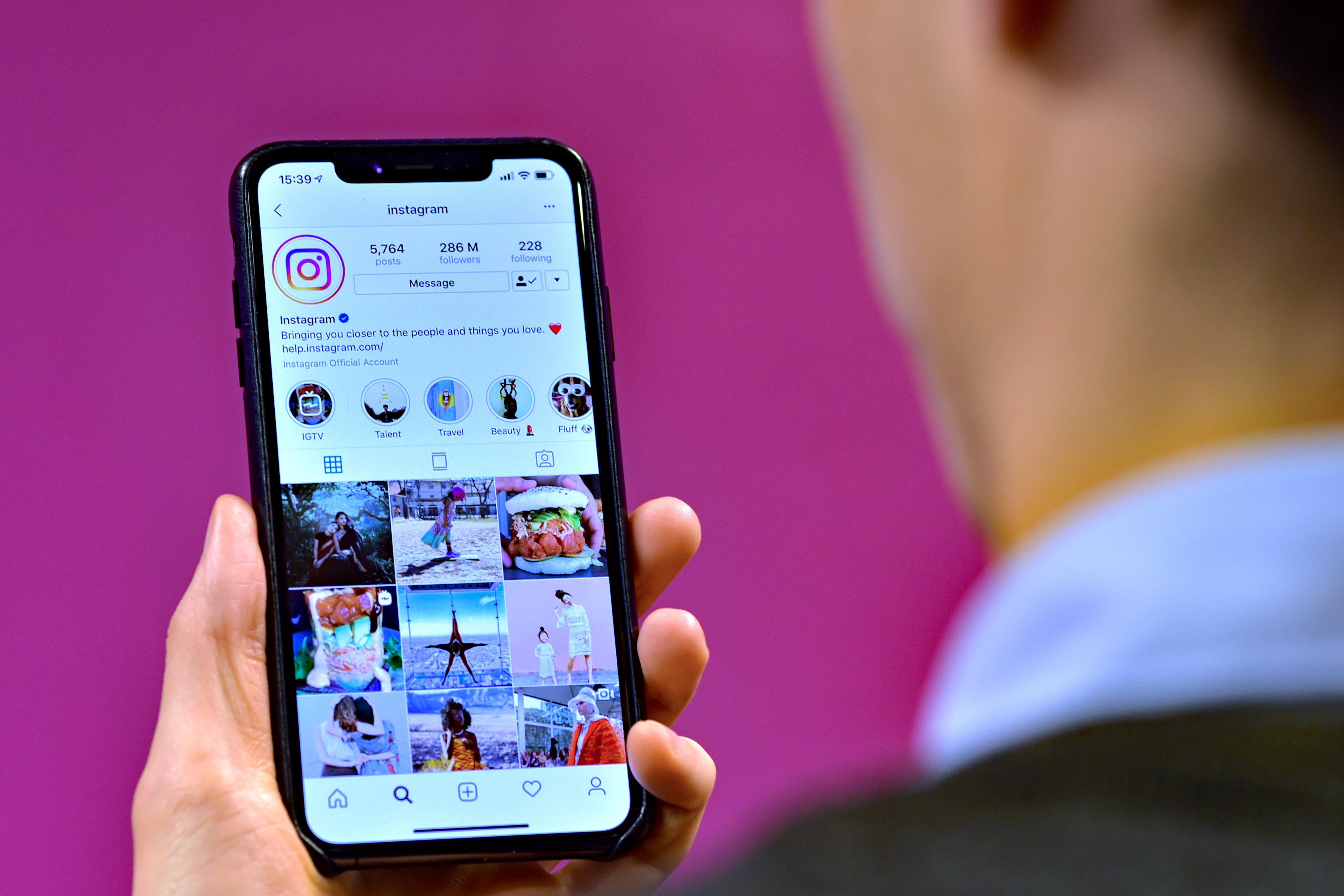Under-18s now unable to get messages from strangers on Instagram and Facebook
Meta has announced stricter controls for teenage users of its social media platforms.

Your support helps us to tell the story
From reproductive rights to climate change to Big Tech, The Independent is on the ground when the story is developing. Whether it's investigating the financials of Elon Musk's pro-Trump PAC or producing our latest documentary, 'The A Word', which shines a light on the American women fighting for reproductive rights, we know how important it is to parse out the facts from the messaging.
At such a critical moment in US history, we need reporters on the ground. Your donation allows us to keep sending journalists to speak to both sides of the story.
The Independent is trusted by Americans across the entire political spectrum. And unlike many other quality news outlets, we choose not to lock Americans out of our reporting and analysis with paywalls. We believe quality journalism should be available to everyone, paid for by those who can afford it.
Your support makes all the difference.Meta is switching off the ability for under-18s to receive messages on Instagram and Messenger from anyone they do not follow or are not connected to, by default, as part of a safety update.
The social media giant said the change is part of its ongoing work to provide “age-appropriate experiences for teens” across its apps.
The change extends an existing Meta policy which does not allow adults to message teenagers who do not follow them, meaning no-one on Instagram or Facebook Messenger will now be able to direct message a teenager who does not follow them.
Meta said in a blog post: “Under this new default setting, teens can only be messaged or added to group chats by people they already follow or are connected to, helping teens and their parents feel even more confident that they won’t hear from people they don’t know in their DMs.
“This default setting will apply to all teens under the age of 16 (or under 18 in certain countries). Those already on Instagram will see a notification at the top of their feed letting them know we’re making these changes to their message settings.
“We’re also making these changes to teens’ default settings on Messenger, where under-16s (or under 18 in certain countries) will only receive messages from Facebook friends, or people they’re connected to through phone contacts, for example.”
In a further safety update, Meta said parents using its existing supervision tools will now have the ability to approve or deny their teenagers’ requests to change their default privacy and safety settings.
Until now, parents were just notified when their child made a change.
Meta said: “For example, if a teen using supervision tries to change their account from private to public, change their sensitive content control from ‘less’ to ‘standard’, or – now – tries to change their DM settings to hear from people they’re not already following or connected to, their parent will receive a notification prompting them to approve or deny the request.
“As with all our parental supervision tools, this new feature is intended to help facilitate offline conversations between parents and their teens, as they navigate their online lives together and decide what’s best for them and their family.”
The update comes as social media platforms continue to face scrutiny over their impact on younger users.
On Wednesday, Prime Minister Rishi Sunak faced a call to consider banning social media and smartphones for under-16s.
Conservative MP Miriam Cates said there had been a “marked increase” in poor teenage mental health since 2010 and called for stricter measures in response.
We’re pleased children will be better protected on Instagram and Facebook, thanks to Meta implementing one of our proposed measures
Speaking during Prime Minister’s Questions, Ms Cates said: “Since 2010, across the English-speaking world, there has been a marked increase in poor teen mental health, teen suicide attempts and children addicted to pornography.
“The United Kingdom has a strong tradition of legislating to protect children from serious threats to their safety and welfare.
“So does (the Prime Minister) agree with me that it’s time to consider banning social media and perhaps even smartphones for under-16s?”
In response, the Prime Minister pointed to the Online Safety Act, which passed into law last year, and said it includes measures designed to protect children online, with the sector’s regulator Ofcom currently developing guidance and codes of practice for tech firms to follow.
On Meta’s safety feature announcement, Richard Wronka, director of online safety supervision at Ofcom, said: “We’re pleased children will be better protected on Instagram and Facebook, thanks to Meta implementing one of our proposed measures.
“We’ve been clear that larger and higher-risk services should ensure children don’t get direct messages from accounts they’re not already connected with.”